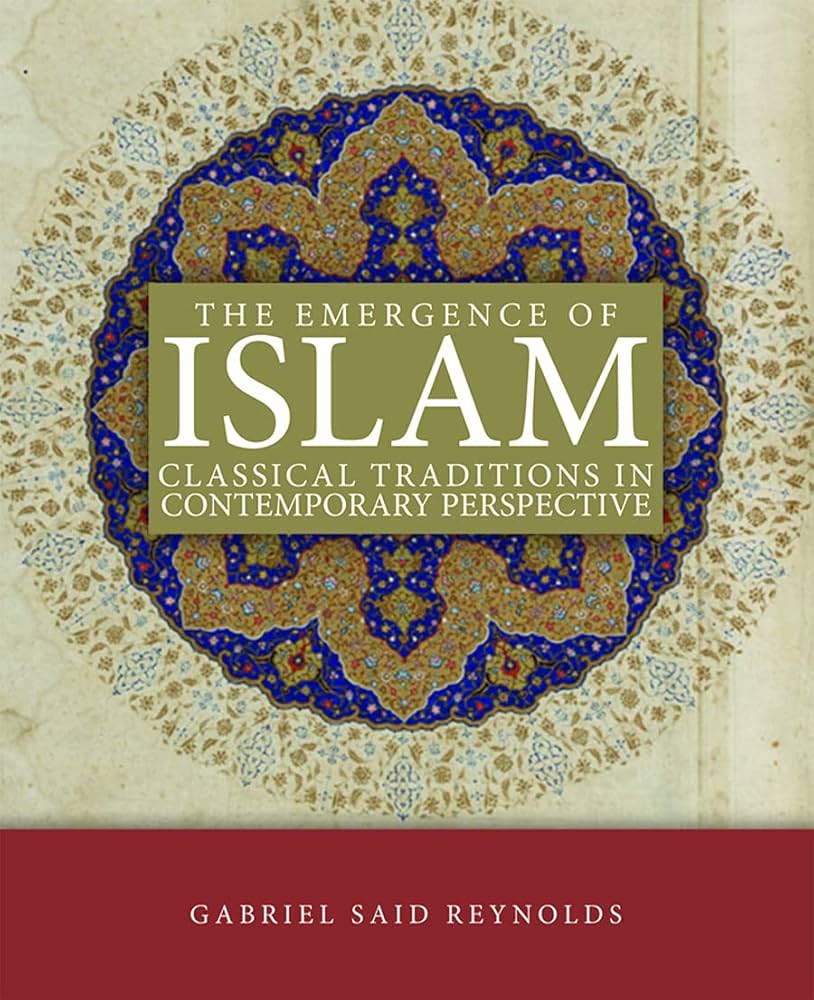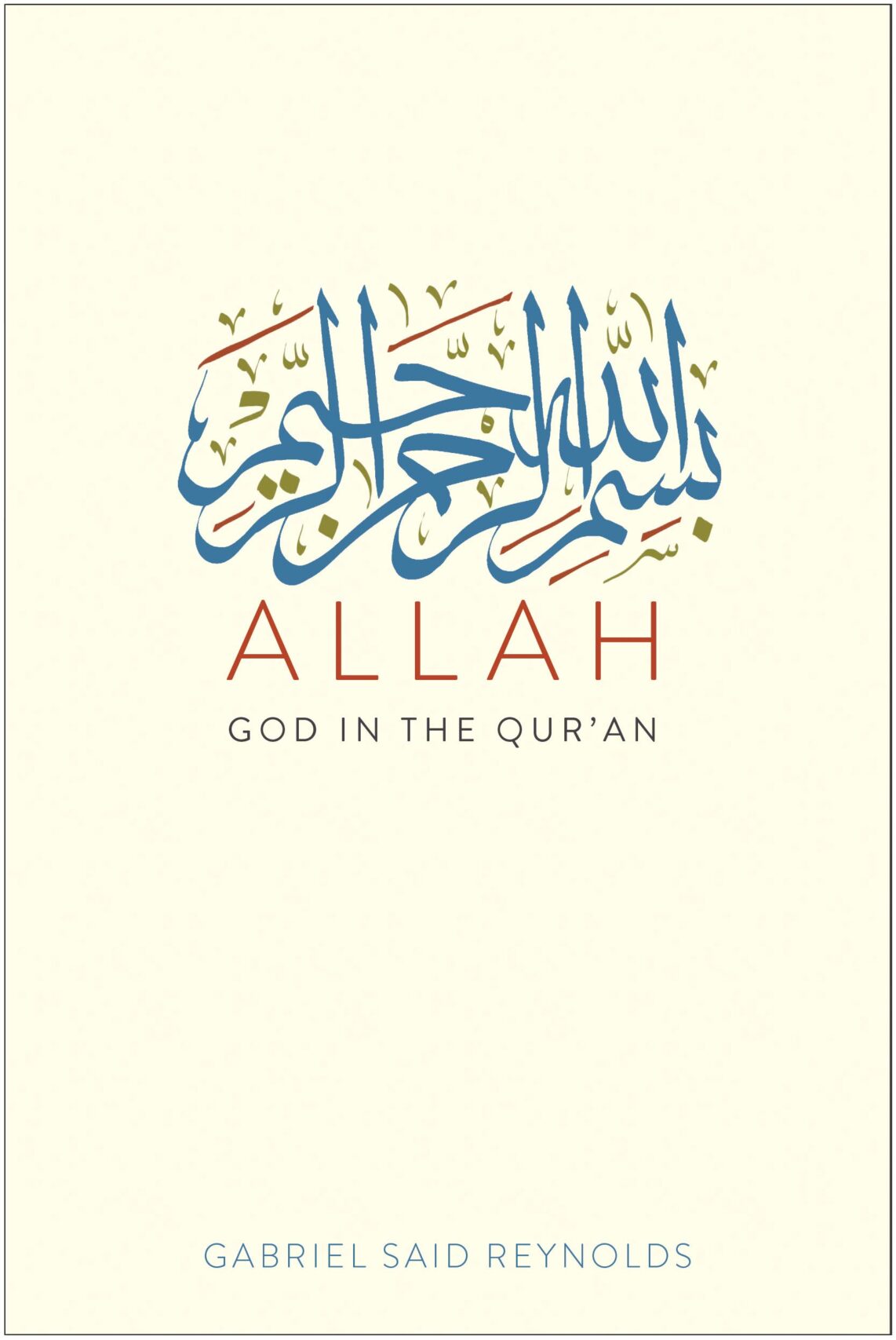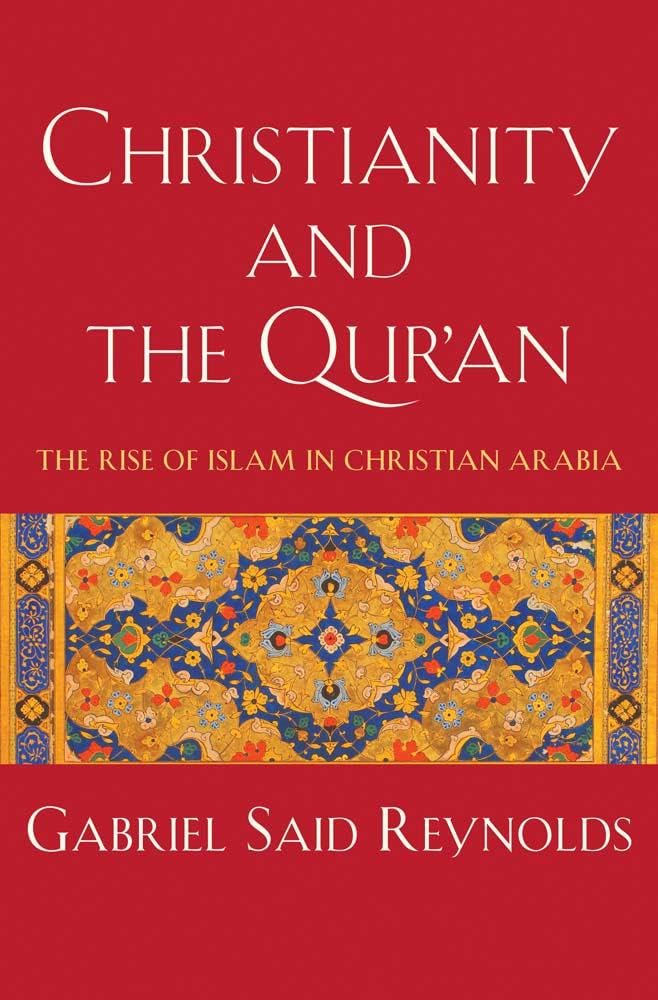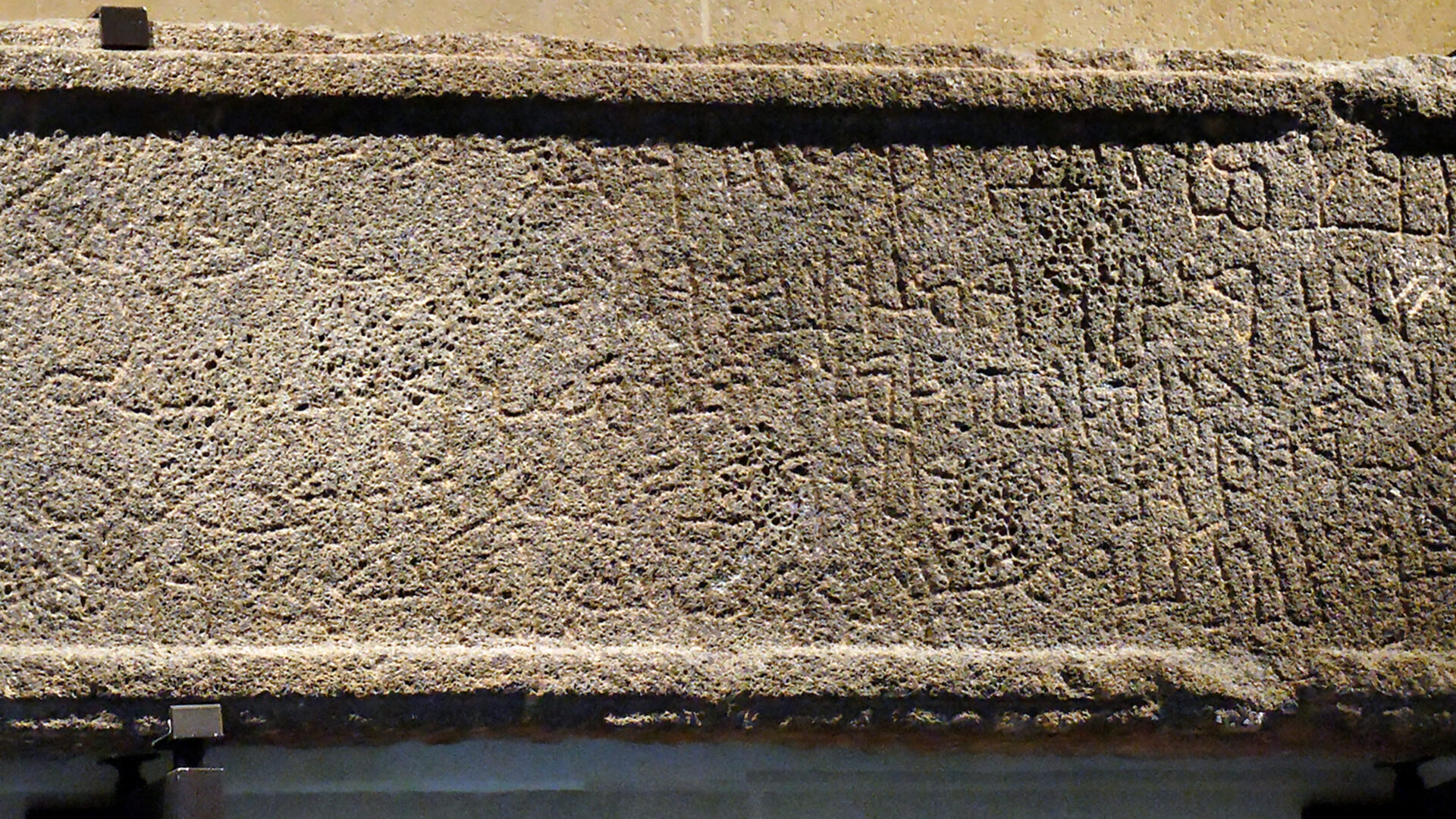As I have done occasionally on the pages of this magazine (check out the select list of articles below), I continue to educate myself on the cultural origins of the religion of Islam and wish I had another academic life (maybe two or three) to examine this maddeningly rich, complex, and especially elusive subject forever and ever. Fortunately, though, we have Gabriel Said Reynolds, the distinguished professor of theology, especially Islam and the Bible, at the University of Notre Dame in the United States to guide us through the maze of this ancient history. And he does so brilliantly not through imponderable tomes but through his introductory textbook The Emergence of Islam, first published in 2012 and reissued in a second edition in 2023. I can’t think of a better foundation for the study of Islam, whether it’s for Muslim students or non-Muslim scholars. The Emergence of Islam covers the major scholarship on Islam with a light touch, gently clarifying issues and answering nagging questions until the fog of clashing traditions lifts to unveil the contours of the history of the Islamic faith.
The Emergence of Islam starts with the startling observation that the Qur’an tells us almost nothing about the life of Muhammad or his companions. Our first record of the life of the Prophet was written by Ibn Ishaq, who died in 767, some 135 years after the date given for Muhammad’s death in 632. We know of Ibn Ishaq’s work not because it survived, but because a later scholar, Ibn Hisham, who died in 833 (two centuries after the death of the Prophet), quoted from it. Another 9th-century chronicler, Ibn Said, who died in 845, introduced the biographical trope of isnad, relying on a chain of presumably reliable transmitters, to document every facet of the life of Muhammad. The collection of such accounts is known as hadith, which, partly through the influence of Al-Shafi`i (d. 820), acquired a semi-sacred status and made it an indispensable companion to the Qur’an. The hadith quickly provided the “basic building blocks of most Islamic sciences (including jurisprudence, history, mysticism, and even grammar).”


A careful survey of the history of Syria, the Arabian Peninsula, and parts of Iraq before the advent of Islam reveals that most of these provinces were populated by Christian Arabs, known variously as Hagarenes, Ishmaelites, and Saracens. Without such a background, the Qur’an, which assumes a thorough familiarity with the Bible, would be incomprehensible to its intended audience of Arabic-speaking people. For the first time, Arabs had a scripture in their language, not Greek or Syriac. This explains why Allah insists that He deliberately revealed the Qur’an in Arabic; in fact, the Qur’an is often considered the first book ever “published” in that Semitic language.
Most of the prophets in the Bible reappear in the Qur’an in highly abbreviated accounts that presume the audience’s knowledge of biblical stories. Even apocryphal accounts like the Protoevangelium of James (the half-brother of Jesus) are echoed in the story of Miriam/Mary, while the legend recounted by Jacob of Serugh in the sixth century about the seven young Christian men and their “watcher” who fall asleep in a cave for two centuries is repeated in the Qur’an. The “agent of revelation” Gabriel and the chaos makers “Gog and Magog” are biblical, too, Reynolds reminds us in his book Allah: God in the Qur’an. But a few prophets appear in the Qur’an only. This would be the cases of Hud sent to his errant people of `Ad, Salih to his nation Thamud, Shu`ayb to Midian, and Luqman who counsels his son, “Have hope in God without feeling secure from His ruse (makr) and fear God without despairing of his mercy.”
Although it is deeply rooted in ancient biblical traditions (what John Wansbrough called the “sectarian milieu”), the Qur’an is unlike the Bible in one major fundamental way. It is not an account of the life of Muhammad by one or various authors, as is the case with the Bible, which is about Moses, David, and Jesus, but a “preexisting book” that was revealed to Muhammad so that he could execute his prophetic mission. It is not a book about Allah, but a book by Allah, a concept “that was prevalent among the pre-Islamic Arabs on the eve of the Islamic era [and] was, in general, surprisingly close in nature to the Islamic one.”
Possibly derived from the Syriac word “qeryana” (“a book of Bible readings arranged for the sake of public recitation in churches”), the Qur’an is expected to be recited well, not necessarily understood. Appearing first without punctuation that is essential for meaning in the Arabic alphabet, the Qur’an was read in seven different ways (a practice later attributed to Muhammad) before Egypt finally established a standard text based on the so-called Hafs reading in 1924 and sunk other versions in the Nile River.
Reynolds’s Emergence of Islam is beautifully supplemented by Allah: God in the Qur’an, published in 2020. Here we learn that the notion of hell (jahannam) “is related to the Greek New Testament term geenna or “Gehenna”—derived ultimately from the Hebrew term ge hinnom, ‘the valley of Hinnom’—the name of a valley on the outskirts of Jerusalem where pagan sacrifices once took place.” Heaven—janna—“is related to the Hebrew term gan, meaning ‘garden.’ Indeed, in several places the Qur’an speaks of heaven as the ‘garden of Eden’ (jannat `adn).” Another term for heaven, firdaws, like its Greek derivative “paradeisos,” is of Persian origin.

These two books were recently supplemented by Christianity and the Qur’an: The Rise of Islam in Christian Arabia (2025), in which Reynolds argues that “the warp and woof of the qur’anic typology is in fact biblical” but not necessarily a simple retelling of Christian accounts already existing in various parts of Arabia. What differentiates the Qur’an from its biblical milieu and gives it a novel look is, as noted in Reynolds’ earlier works, its Arabic language and new prophet, Muhammad. Now that the presence of Christians in Arabia is documented, we don’t have to assume that the Qur’an, as “a literary work,” must initially have emerged in a “Syro-Palestine” context where the presence of Christianity is firmly attested, but in the Hijaz itself, although the qur’anic text went “through significant editing, reformulation, and redaction” over time.
Extensive textual evidence from Jewish and Christian traditions about the nature of Jesus (`Isa), the rise and fall of Adam and Eve (and the unfortunate role of Satan in this drama), Abraham’s war against idolatry (and his father Terah), the tragedy of Joseph, and the nature of monasticism are reframed to give Arab speakers–until them mere ummiyyun, that is to say people without a scripture, or gentiles, forced to practice their Christian faith in the foreign languages of Syriac or Aramaic–their own religion in a speech the Qur’an tells us is “Arabic manifest.” Even when the Qur’an condemns the Jews for slaying prophets, it borrows from an old anti-Jewish Christian motif.
In short, the Qur’an is “fundamentally a polemical engagement” with Christianity, and not a revelation that descended ex nihilo on a prophet in a barren land without scripture.
Such an immensely condensed reading of Reynolds’s three books, which glosses over a number of issues, including the differences between the image of God in the Bible and the Qur’an, unequivocally implies that the Qur’an as a document is part of the biblical tradition, and that a lack of knowledge of Christian and Jewish literature doesn’t help us appreciate the Qur’an fully. As Christian groups known as Melkites, Jacobites, and Nestorians debated the nature of Jesus in relation to God, the Qur’an “enters into this debate by offering a new Christological position: Jesus had only one human nature. In other words, from the perspective of the Qur’an, Jesus is not ‘Emmanuel,’ he is not ‘God with us.’ He is not the son of God who emptied himself of his divinity and took the form of a servant. Jesus is a prophet and, like other humans, a servant of God. He is not God become man but a human whom Christians have made into a god.” A transcendent God, in other words, cannot be “father” to Jesus or anyone else.
Unfortunately, Muslims have not shown any genuine interest in biblical studies, unless it is for dismissing Judaism and Christianity as corrupt religions and “making arguments on the basis of the Bible to convert Jews or Christians to Islam.” Yet the Islamic tradition tells us it was the Christian Bahira who recognized Muhammad’s prophecy, and it was his wife Khadija’s cousin, the hanif Waraqa (a man “learned in the Scriptures”), who, according to Ibn Ishaq, certified his prophetic experience. Why, then, is pre-Islamic biblical history ignored by Muslim scholars or, even worse, dismissed as an utterly insignificant Time of Ignorance known as the jahiliyya?
One possible explanation is that ninth-century Muslim biographers and collectors of hadith distorted the cultural context of the revelation because they had lost connection to the biblical world and had to serve the new political goals of the rising Islamic empires of the Umayyads and Abbasids. Yet this rewriting of the emergence of Islam somehow, miraculously, kept the role of Jesus as the chosen prophet (described by Ibn Ishaq as “a reddish man with many freckles on his face as though he had just come from a bath”) to herald the final apocalypse. God, one might say, works in mysterious ways.
(This article was expanded on November 23, 2025.)
Select articles by Anouar Majid on Islam since 2013:
Jerusalem and the Emergence of Islam





Comments are moderated by the editor and may not appear on this discussion until they have been reviewed and deemed appropriate for posting. All information collected is handled in a manner consistent with our privacy policy.